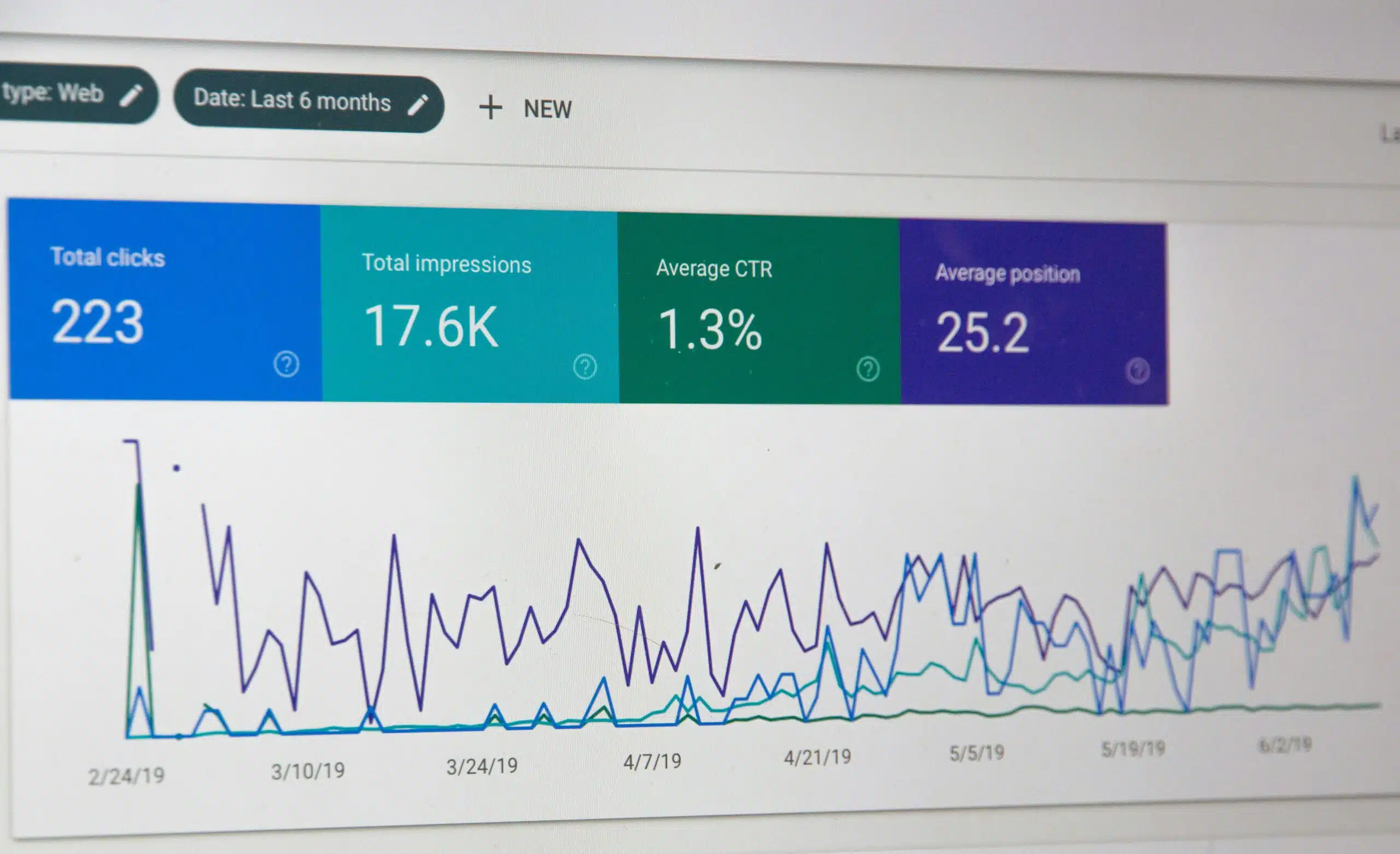Social media analytics is a key tool for marketers looking to improve their results. Did you know that 70% of marketers are still unsure how to measure their social media analytics effectively? This article will cover the importance of understanding social media analytics, key metrics to monitor for effective outcomes, and the best tools available for data-driven strategies. By engaging with this content, readers will learn how to audit their current efforts, benchmark success, and enhance customer conversations to achieve better marketing results.
Key Takeaways
- data analytics significantly improves marketing strategies and decision-making processes
- understanding audience behavior enhances engagement and conversion rates for marketing campaigns
- choosing the right analytics tools is essential for effective customer interactions and insights
- regularly assessing strategies and metrics ensures alignment with audience preferences
- tailored content creation based on data leads to increased brand loyalty and success
Understanding the Role of Social Media Analytics in Marketing

The increasing reliance on data has reshaped marketing strategies, highlighting the importance of analytics in decision-making. Social media analytics informs policies, drives creativity, and influences email marketing campaigns. Understanding these elements reveals how analytics can significantly impact marketing outcomes, leading to more effective strategies while considering factors like accounting and potential political shifts.
The Importance of Data in Marketing Strategies
Data is central to shaping effective marketing strategies in today’s competitive landscape. Organizations can streamline their infrastructure by leveraging business intelligence and gaining insights into audience behavior, preferences, and trends. This information allows marketers to adapt their strategy, ultimately leading to better engagement and improved marketing results.
How Analytics Drive Marketing Decisions
Analytics play a crucial role in shaping marketing decisions by enhancing data quality and promoting efficiency in digital marketing efforts. By understanding audience preferences through advanced algorithms, marketers can tailor their campaigns to improve engagement and build a positive reputation. This data-driven approach allows organizations to make informed choices, ultimately leading to more successful marketing outcomes:
- Enhanced data quality leads to reliable insights.
- Improved efficiency in campaign execution through targeted strategies.
- Algorithms help predict audience behavior and preferences.
- Strengthened reputation through engagement with the right audience.
Key Metrics to Monitor for Effective Marketing Outcomes

Engagement rates provide insight into audience interaction with content, reflecting the effectiveness of marketing efforts. Conversion metrics are essential for tracking success and showcasing how many users take desired actions. Share of voice offers an understanding of brand awareness compared to competitors. These key metrics are the foundation for informed analysis, workflow enhancement, and strategic decisions in various contexts, including political campaigns.
Engagement Rates and Their Significance
Engagement rates are vital for assessing customer interaction with an organization’s content across social media platforms. High engagement indicates strong customer engagement and loyalty, while low rates signal a need for improved media monitoring strategies. By utilizing automation tools to analyze these rates, marketers can refine their approach, making it more relevant and effective in reaching the intended audience and boosting overall marketing results.
Conversion Metrics and Tracking Success
Conversion metrics are essential for evaluating the success of marketing campaigns as they directly reflect how well efforts translate into desired actions. Machine learning can enhance these metrics’ accuracy by analyzing user data for targeted advertising, increasing relevance, and boosting conversion rates. Prioritizing conversion metrics improves content creation and strengthens search engine optimization strategies, ensuring that marketing efforts capture the right audience’s attention.
- Conversion metrics provide insight into user actions.
- Machine learning enhances accuracy in tracking conversions.
- Targeted advertising increases relevance and boosts rates.
- Effective content creation relies on understanding user behavior.
- Search engine optimization benefits from refined conversion tracking.
Share of Voice and Brand Awareness
Share of voice is a critical metric that measures a brand’s presence in the market relative to its competitors, revealing insights into brand awareness. Through effective data collection, marketers can analyze how often their brand is mentioned compared to others, factoring in details such as audience demographics and gender. This understanding allows for better personalization in marketing approaches, especially in campaigns using a mobile app, all while adhering to regulations like the general data protection regulation to ensure ethical data usage.
Tools for Data-Driven Social Media Strategies

Choosing the right analytics tools can significantly enhance marketing results, especially in 2024. This section examines top analytics tools that utilize predictive analytics for understanding customer behavior, the role of marketing automation in streamlining processes, and how to integrate these tools with existing marketing platforms. These insights will help marketers improve customer experience and effectively leverage influencer marketing.
Overview of Top Analytics Tools in 2024
In 2024, various analytics tools are available that help businesses enhance their marketing strategies by focusing on customer data and loyalty. These tools provide critical insights that improve content strategy and increase brand awareness through data-driven decisions. For example, platforms utilizing advanced algorithms can analyze audience behavior, enabling marketers to optimize campaigns and build lasting relationships with their customers:
| Analytics Tool | Key Feature | Benefit |
|---|---|---|
| Sprout Social | Customer engagement tracking | Enhances brand loyalty through direct interaction |
| Hootsuite Insights | Audience sentiment analysis | Improves content strategy based on user feedback |
| Google Analytics 4 | Cross-platform tracking | Boosts brand awareness by analyzing user behavior |
How to Choose the Right Analytics Tool for Your Needs
Choosing the right analytics tool is essential for enhancing visibility and driving lead generation on social networks. Marketers should consider tools that offer comprehensive customer service solutions, allowing them to engage effectively with their audience and gather valuable insights. It’s important to assess how each tool fits into the overall marketing strategy and what specific needs it addresses:
- Assess the features offered by the tool.
- Consider integration capabilities with existing platforms.
- Evaluate customer service and support options.
Integrating Analytics Tools With Marketing Platforms
Integrating tools like Hootsuite with existing marketing platforms can significantly boost content marketing efforts by providing valuable insights through competitor analysis. By leveraging competitive intelligence, marketers can better understand their target audience’s preferences and behaviors. This integration streamlines operations and enables more effective engagement strategies, allowing businesses to refine their approach and enhance overall marketing results.
Creating a Data-Driven Social Media Strategy

Effective social media marketing begins with setting clear objectives aligned with analytics, ensuring that businesses can track progress and measure revenue. Developing content strategies based on insights gained from analytics allows for more tailored messaging. Additionally, identifying target audiences through data analysis enhances engagement and boosts reputation management, making each campaign more impactful.
Setting Clear Objectives Aligned With Analytics
Setting clear objectives aligned with analytics is vital for any brand aiming to maximize social media impact. Businesses can effectively track their progress by focusing on measurable goals, such as improving customer satisfaction or increasing engagement rates. For instance, when a consumer engages with an ebook shared on social media, the brand can analyze these interactions to better understand preferences, ensuring future content resonates well with the audience.
Developing Content Strategies Based on Insights
Developing content strategies based on insights from social media analytics is essential for maximizing marketing effectiveness. Marketers can create targeted campaigns that lead to higher engagement and better conversion rates by conducting thorough research on audience behavior. For example, using analytics can reveal which types of content perform best, allowing brands to refine their landing pages for improved return on investment and prepare for any potential crisis management scenarios.
| Strategy Element | Actions | Benefits |
|---|---|---|
| Research | Analyze audience behavior and preferences | Informs content creation |
| Landing Page Optimization | Refine based on performance data | Improves conversion rates |
| Return on Investment | Measure effectiveness through analytics | Enhances overall marketing strategy |
| Crisis Management | Monitor sentiments actively | Prepares brands for rapid responses |
Identifying Target Audiences Through Data Analysis
Identifying target audiences through data analysis is essential for crafting effective social media strategies. By employing sentiment analysis, marketers can gauge audience feelings and preferences, which helps tailor messages to specific demographics. Furthermore, data science assists in understanding the social status, ensuring campaigns reach users who are more likely to engage, while chatbots can collect ongoing feedback to refine audience insights.
| Analysis Method | Purpose | Outcome |
|---|---|---|
| Sentiment Analysis | Gauge audience feelings | Tailor messages effectively |
| Data Science | Understand social status | Identify key engagement demographics |
| Chatbot Feedback | Collect ongoing audience insights | Refine targeting strategies |
Best Practices for Leveraging Social Media Analytics

Regularly assessing and adjusting strategies is crucial for effective marketing outcomes. Utilizing A/B testing can enhance campaigns by optimizing various elements based on audience preferences. Engaging with analytics reports and dashboards provides valuable insights into data management and audience perception. These best practices help businesses improve their marketing efficiency and adapt to changing trends, ultimately driving better results.
Regularly Assessing and Adjusting Your Strategy
Regularly assessing and adjusting marketing strategies based on social media analytics is essential for achieving optimized results. By monitoring key performance metrics, marketers can identify what works and what needs improvement. For example, if engagement rates drop on a specific platform, a brand can quickly pivot its approach to better connect with the audience, ensuring marketing efforts remain relevant and effective.
Utilizing a/B Testing for Optimizing Campaigns
A/B testing is a powerful method for optimizing marketing campaigns through social media analytics. This approach allows marketers to compare two versions of content to see which performs better, helping to identify what resonates with the audience. By implementing small changes, such as adjustments in headlines or images, businesses can significantly enhance engagement and conversion rates, ultimately leading to improved marketing results.
Engaging With Analytics Reports and Dashboards
Engaging with analytics reports and dashboards gives marketers vital insights into their social media performance. By regularly reviewing these reports, professionals can identify trends and adjust their strategies to enhance engagement and conversion rates. Utilizing intuitive dashboards allows quick access to key metrics, streamlining the decision-making process and ensuring that marketing efforts consistently align with audience preferences.
Conclusion
Social media analytics is pivotal in transforming marketing results by providing critical insights into audience behavior and preferences. Marketers can tailor their strategies by leveraging data, enhancing engagement, and boosting conversion rates. Regular assessment of key metrics ensures that campaigns remain relevant and effective in a rapidly changing landscape. Embracing these analytics leads to smarter decision-making, ultimately driving improved marketing outcomes and fostering brand loyalty.





